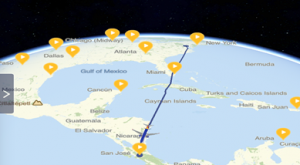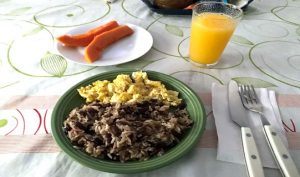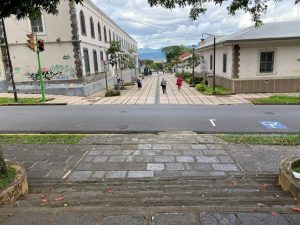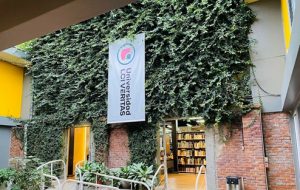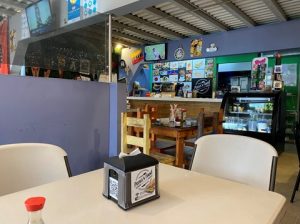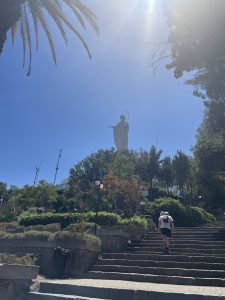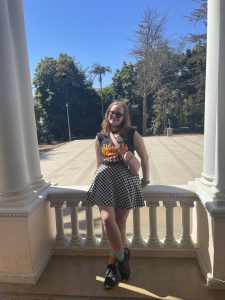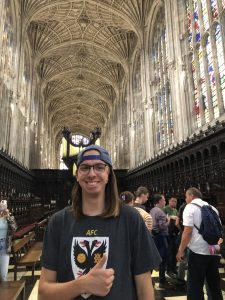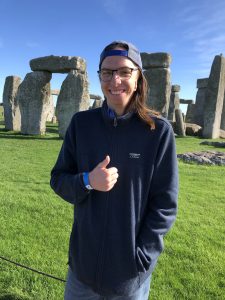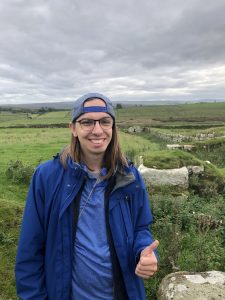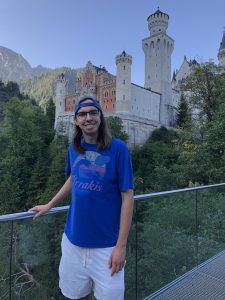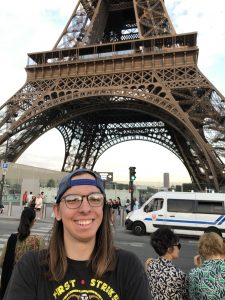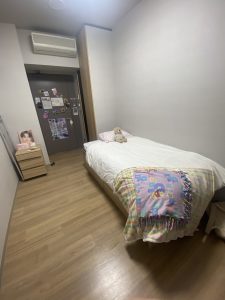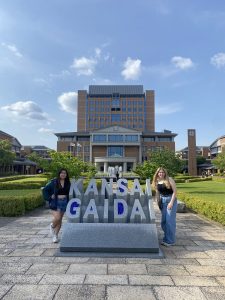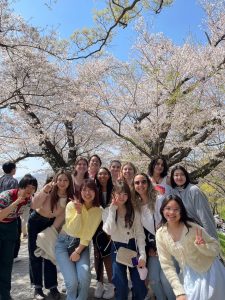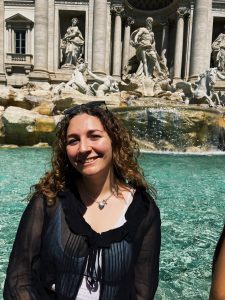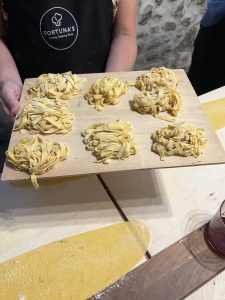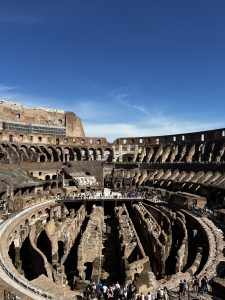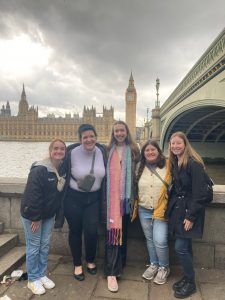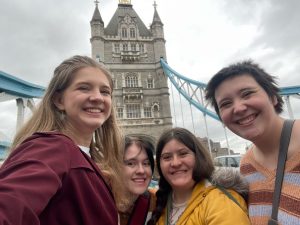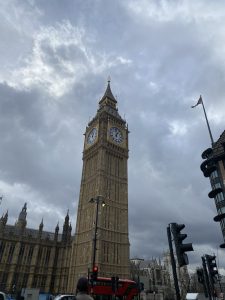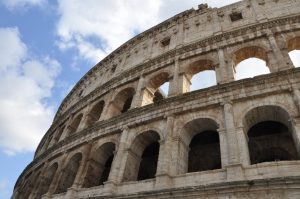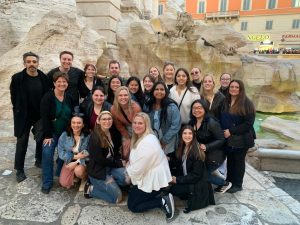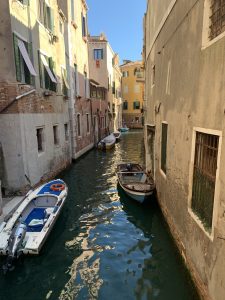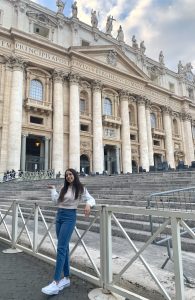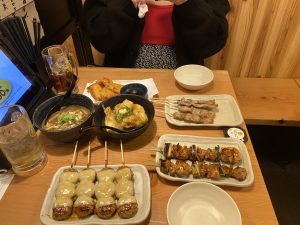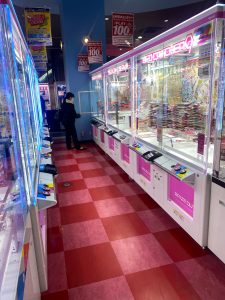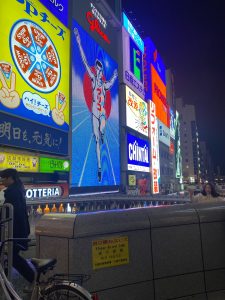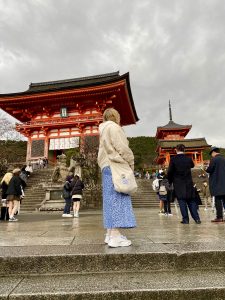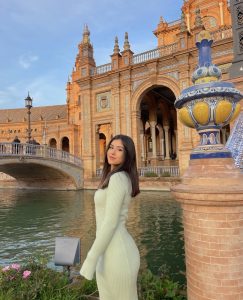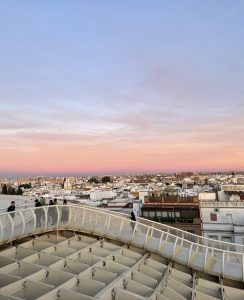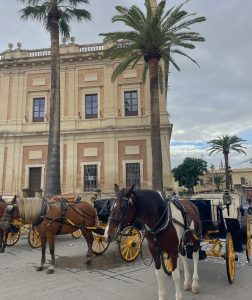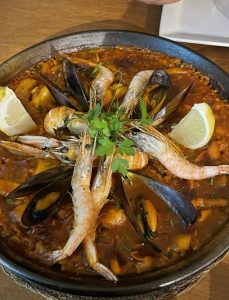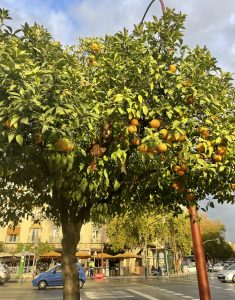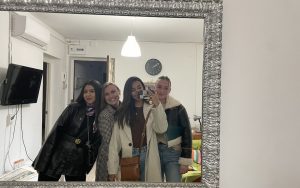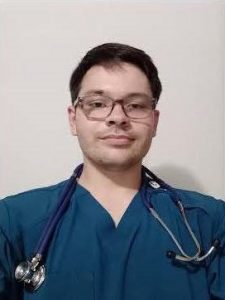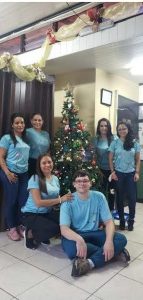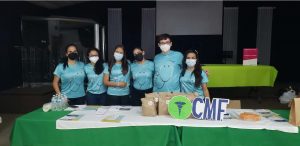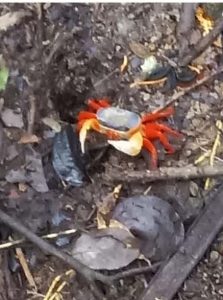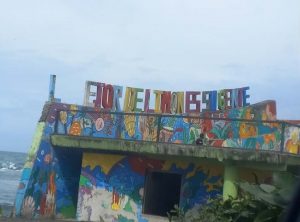Name: Ray Jackson
Program: Valpo Study Center in Heredia, Costa Rica
Location: Heredia, Costa Rica and San Jose, Costa Rica
Ray’s First Week in Costa Rica
Traveling
I had a very early flight during the morning of Sunday, July 7th. I woke up at around 1AM, prepared all my stuff, and by around 5:15, my plane was taking off. After a couple of flights, I arrived in San Jose, and I could already feel the humidity from the airport. My lovely program director, Heidi, picked me up from the airport and gave me a ride straight to my host family’s house.
Host Family
I had already known a few things about my host family before I arrived. I knew that my host mom lived alone with her dog and had family members who sometimes visited. But it was very interesting to learn that she knew very little English, so I was a little bit concerned about how we were going to communicate. After the first day, I quickly learned that the Spanish I already knew went a long way. A lot of the time, I am away at the University, but I always enjoy chatting with my host mom when I am home. She is also a very talented cook and baker!
Transportation
I started classes on Monday, the day after I arrived, so after having breakfast with my host mom, I was faced with one of my first challenges: getting to the university. The way that I would get to and from class everyday was by train, which isn’t too bad. But it took me a few days to learn my way through San Jose so that I can go from that train station to the University and back. Good thing Heidi was nice enough to walk with me until I felt comfortable. It was stressful at first, especially when it was dark outside. But, after the first week or so, the transportation was hardly an issue. That is, until the middle of the second week when it started to rain and rain and rain. I missed the train and lost my umbrella, but I’ll talk more about that later.
Class
This summer I am taking two classes: a Spanish Grammar and Conversation course and a Marketing course in English. I quickly learned that I LOVED both of my “profesoras”. My Grammar and Conversation class is very interesting. There is quite a bit of homework, but luckily for me she posted the assignments the week before and I got ahead. The professor’s kindness makes me feel like I belong, and she welcomes learning from your mistakes. She is also HILARIOUS; I crack up every day in her class. My marketing professor is super sweet and friendly too. There are only two other students in the class so we all have fun chatting with the professor and working together to learn new things. And thank goodness I have some time to speak a little bit of English!
Internship
Between my two classes, I intern at a restaurant/travel agency near the University. I met my supervisor, Don Luis, on the first day of class with Heidi, and I was fascinated by his warm and energetic personality. I started my first day there on Wednesday, and my job for the week was pretty much just to make an English version of the restaurant menu. PIECE👏 OF👏CAKE👏. I hadn’t really gotten to know much of the other workers there during the first week because Don Luis was the only one who knew English, and I didn’t feel the most comfortable speaking Spanish yet. But wait until I start getting a little more confidence 😉.
So, after everything I’d say my first week was pretty alright. I definitely have some more to learn and get used to, but I have a lot more time to adjust. Technically the week wasn’t over because we’ve still got the weekend! I can’t wait to talk about my weekend excursion to the Caribbean coast 🏖️!
